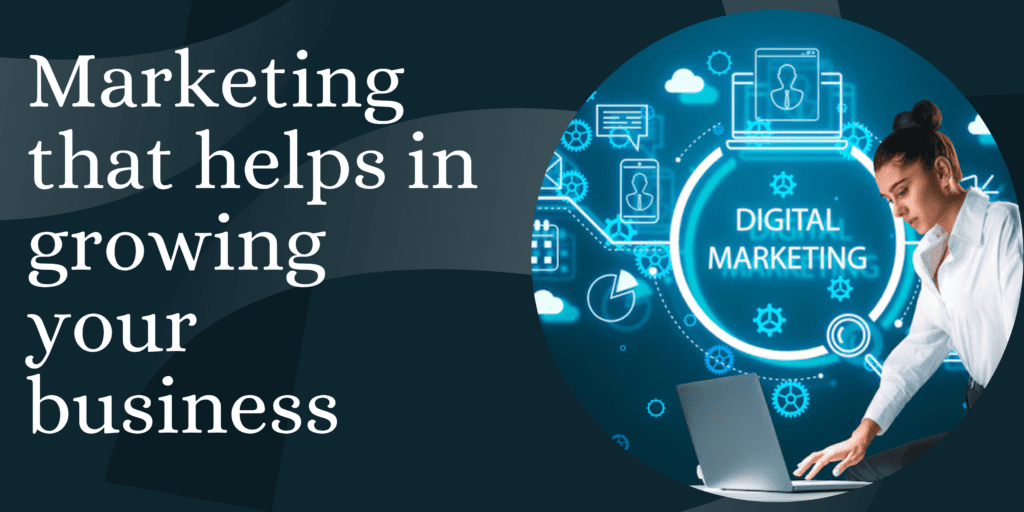Introduction
In a job market that is rapidly evolving and an increasing number of organizations seeking computer-literate employees, digital skills have transitioned from a nice-to-have to a must-have for job seekers. Each organization in every industry sector is experiencing digital transformations, and employers are announcing they are seeking skilled and trained candidates with self-reported adequate or up-to-date technical knowledge. It does not matter whether you are a new graduate entering the job market or a working adult seeking to upskill or reskill; learning digital skills opens doors to limitless career opportunities. Building systems, designing user experience, and marketing services (online) are not only relegated to IT professionals anymore; they are new currency for job success in all industries. Employers want nimble employees who can contribute digitally from day one and who can adapt and innovate. So this increased emphasis on IT has resulted in computer literacy, graphic design, and digital marketing being three of the most in-demand digital skills. This is why the Global Institute of Computer Technology (GICT) and other education providers are focusing on delivering tech courses with industry-relevant curriculum to prepare learners for paths to careers outside the 4 walls of a classroom. These skills are useful, but they are also career-defining. In a world where job roles change on a regular basis, investing in tech training is like a job security blanket for the future of work, finally allowing skill-based learners to shine. Digital skills are beneficial, whether it is learning Excel for finance, Photoshop for creative/design/media, or video marketing.
1. Build: Foundation Skills Through Computer Courses

The first and most important step toward achieving excellence in a digital career is to build a strong foundation in computer skills through technology courses. In today’s technology-filled world, basic computer knowledge, such as using Microsoft Office, using the Internet, and managing files, is fundamentally required in almost every commercial occupation. If you are entering the workforce or looking to enhance your position by entering new digital roles, a computer course will set the foundation for the digital fluency required. For example, the Global Institute of Computer Technology (GICT) offers computer courses for learners with different skill levels, ranging from beginner to advanced level, in areas like financial accounting with Tally, Power BI for data visualization, and professional typing and data entry. These are more than skills; they are tools that employers look for in new hires. For example, Power BI knowledge will help when taking on analytic roles that involve data-driven decisions. Similarly, knowledge of Tally is an essential requirement in finance and accounting roles. In addition to providing practical software systems, these courses provide students with hands-on experience, increasing their confidence and allowing them to apply their knowledge in job settings. And perhaps most importantly, these computer courses lay the foundation for learning even more advanced techniques in exciting new areas like graphic design and digital marketing. Those who have the most technical training and education are often the most creative and successful.
2. Design: Let Creativity Speak With Graphic Designing”
Graphic design is about more than creating things that look good; it is a form of visual and creative communication that is in high demand in today’s technology-focused world. Every individual and brand relies on strong imagery, whether it is a social media post, a logo of a business, or an advertisement banner, to grab attention and, more importantly, build trust. Graphic design is a valuable method for achieving excellence in a digital career through all things tech. At The Global Institute of Computer Technology (GICT), we train students to turn ideas into designs using industry-standard graphic design software such as Adobe Photoshop, Illustrator, and Canva. Through professional guidance and practice with these design applications, the students have the opportunity to learn important skills such as layout, color theory, typography, and branding. Graphic design or any training course is not all about learning software; it develops creativity, critical thinking, persistence, and attention to detail, all of which every employer wants to have in their workplace. In a world that is filled with endless graphic content, creating an ‘advertising’ world saturated in all areas, the designers will help brands and content pick you out through strong designs that visually communicate meaningful imagery. An important thing to note is that the skills graphic designers possess are transferable across numerous areas. Graphic designers can work in a myriad of practices, from designing posters to creating visuals for websites, etc., and it can happen directly or through marketing agencies or startup companies, as well as freelance jobs. The need to create content for individuals and companies to promote products and services as we move further into this technological world will continue, and the need for graphic designers will continue to rise. In addition, students will have the ability to build portfolios built during their training courses, creating sources of work and accreditation to prove to the public, concurring with how effective classifying a graphic designer as a product of work can be in regard to improving professional visibility.
3. Market: Become a Digital Marketing Powerhouse
In today’s business environment, digital marketing is a necessity for connecting with your customers and delivering results online, not just a skill. Even with traditional marketing approaches, there are always advertising paths that exist in social media promotions, Google advertisements, email campaigns, and so on. Digital marketing connects brands to audiences faster and more efficiently than traditional marketing. Therefore, anyone who wants to master this field and excel in digital careers should take tech courses that align with this understanding.
At the Global Institute of Computer Technology (GICT), a course on digital marketing will delve into everything from SEO (search engine optimization) to creating social media strategies, content creation, and analytics to measure the success of your campaigns. Students learn how to plan, create, and execute marketing campaigns using industry-standard tools such as Google Ads, Meta Business Suite, and more. These practical skills help equip learners to tackle real-world scenarios, whether they want to work freelance, start their own business, or pursue a full-time career in digital marketing. The magic of digital marketing is in the reach a brand can have, reaching audiences around the world with the click of a button. As a result, career opportunities in the digital marketing field are on the rise. Employers want people who are able to turn data into a strategy, engagement from content, and consumers from clicking on ads. The course does not only concentrate on theory but also prepares students to think epidemiologically as marketers and examine buyer psychology.
4. Combining All Three: The Career Trifecta

In the developing world of digital technology, it is important to hone a single skill when you can, but combining multiple skills gives you competitive career strength. Mastering the ability to build strong computer foundations, establish attractive visuals, and market ideas creates a great combination and an offer of limitless career opportunities. If you can manage the tech, design the communication system, and implement a campaign for audiences, you become less of a job seeker and more like a digital asset. This comprehensive skillset enables you to execute the tasks of building the framework overall to see the full metaview view. This is exactly the goal of the Global Institute of Computer Technology (GICT) in offering a well-rounded digital education. GICT wants students to be prepared for what the “real world” involves. Consider invitations to become a digital strategist, UI/UX consultant, or marketing analyst. Understanding all three industry skills allows one to pivot comfortably within various fields of competition. For example, a digital strategist knows how campaigns get constructed, the cognitive response to designs created by the users, and the tracking of related performance metrics around metrics. A UI/UX consultant must understand how tech works, how to design considering the user, and ultimately, test what really connects. Marketing analysts who consider that same knowledge for the sake of visuality and idea stacking, among other actual, missing, or lost attributes, are worth being placed in the conversation.
5. Real Success Stories: Learning That Leads to Earning
In today’s digital age, success means being adaptable, diversifying your skillset, and being willing to learn. Real-life stories demonstrate this every day. Many people lacking technical expertise have changed their careers by engaging in digital learning. We are not restricted by age or any past career—whether you are a homemaker, student, or working professional, we can all rewrite our story and explore new-age learning through dedication. For example, a commerce graduate with no idea what to do learned digital marketing and graphic design and now manages campaigns for global brands. There is also a learner that nursed a career as a receptionist; after learning Power BI and data analytics, she secured a job as a data analyst at a startup.
Pros who have made a transition—successfully—often provide important pieces of advice: keep a portfolio, continue to practice consistently, and never stop learning! Beyond certificates, many have encouraged a focus on projects, as this is useful for potential employers. They also emphasize soft skills like communication, punctuality, and digital professionalism as trust builders and retention enhancers in freelance and full-time work. Most of these transition stories are not the exception; they are the norm. Digital literacy is not a skill; it is a threat to stability, confidence, and growth. When learners bring the right mindset, practical learning experience, and commitment to the table, they have taken a modest start and made it limitless. If you are a beginner or have experience that needs a lift, make no mistake–learning is evidence that leads to earning, and these success stories are evidence of that.
6. Soft Skills: The Hidden Strength in Digital Careers
Technical skills unlock doors in this rapidly changing digital arena, while soft skills open the doors and generate meaningful growth. Skills like communication, time management, and professionalism are not just complementary skills; they are needed skills. The way you communicate with clients when presenting a campaign idea or the way you communicate with a team remotely for a design project is essential. Soft-skill candidates that can communicate clearly and respectfully will be memorable. Management of your time and respect for it also move you and your employer forward. It is important to deliver on time while also maintaining a good work reputation with others, especially if you are the freelance or remote worker that represents your locale. Self-discipline is key.
Additionally, employers in both technical and creative fields continue to value a range of personality characteristics that resemble accountability, initiative, and adaptability. A skilled designer who cannot accept constructive criticism or a programmer who cannot work as part of a team can frustrate project success or outcomes. In today’s market, character elements such as creativity, problem-solving, and growth mindset have taken equal footing with knowing how to operate Adobe or use Python. Employers want candidates who model traits like curiosity, grace under pressure, and positive engagement in brainstorming/feedback environments.
Emotional intelligence (EQ) is another advantage in this whole process. It allows you to read the room—even a virtual room—and offer an empathetic response. Day-to-day, EQ allows for easier collaboration, conflict resolution, and team trust. As digital careers become the norm, remote collaboration and working with diverse teams will also be the norm; while your hard skills differentiate you as a professional, your emotional intelligence will differentiate you as a good professional versus a great one. People with higher levels of EQ will also be better leaders, positioned to excite and motivate teams to achieve a common objective.To sum up, while you may have all the hard skills to list on your resume, it is the soft skills that provide for the storyline of your professional journey. They are your secret weapon and the not-so-secret attributes that help define not only how you complete your job but also how you will advance in your career. In today’s world, understanding how to leverage digital tools and human engagement sets the blueprint for career success.
7. Your Roadmap: Getting Started with Digital Career Training
Embarking on your digital career path comes down to just one crucial step—choosing the right course that aligns with your goals and interests. It does not matter if you’re a digital marketer, graphic designer, or data analyst; knowing your direction enables you to choose a course that will actually benefit you. Ask yourself, what skills do you want to learn, and how do they fit into a specific job role? Do not get caught up in trends—pick a course that you will enjoy, and develop a career that offers long-term value! Look for beginner courses that teach core knowledge of the discipline before you explore advanced tools and platforms.
After you sign up for your course, success is simply dependent on your level of commitment to learning consistently. Create a learning schedule that suits your life—one hour per day or just weekends. Treat it like a job. Whatever you choose, commit to it! Practice your learning not just by looking at video resources, but by doing! Do small little projects and try the exercises in real-time. Doing these shorter projects or exercises will build confidence in your developing skills and improve your memory retention of concepts. Use a digital planner or app to plan your progress and make weekly goals, and reward yourself once you complete an activity or task.

Fortunately, the internet is filled with free and inexpensive resources that can help you grow. Sites like Coursera, YouTube, and Google provide certificate courses in marketing, design, analytics, and more. I also love project-based learning—you learn how to solve problems or create value while building a portfolio that employers can actually trust. Participate in forums or online groups to share insights, get feedback, collaborate, and benefit from the supplementary structure that they can provide. When you find the right course through a sustainable commitment of time and deliberate learning, you are not only building skills; you are building a future.
Your roadmap is not only about learning software, however; it is about developing a new way of thinking, your routine, and your commitment to a future in a digital career. Start where you are, use what you have, and keep moving forward. The digital world is waiting for skilled learners and passionate learners, just like you.
Conclusion
In our reality of digital first, success is created on a foundation of adaptable, applicable, and forethinking skills. By cultivating the trifecta of building strong technical foundations, creatively designing, and strategically marketing, you are setting yourself up for not just a job—but a dynamic, fulfilling career. These three components—build, design, and market—will get you to digital career success across a variety of industries.
Whether you see yourself as a data analyst, digital marketer, graphic designer, or techpreneur, it starts with learning and taking action consistently. Courses related to computer fundamentals, graphic design, and digital marketing will provide you the knowledge. Experience and real-world projects will provide you with eye-opening and practical utilization. Your exclusive array of skills is what sets your career apart.
But knowledge is not enough. Soft skills like communication, time management, and problem-solving will augment your professionalism. Having a growth mindset and a commitment to learning will open unlimited global opportunities in today’s borderless job marketplace.



